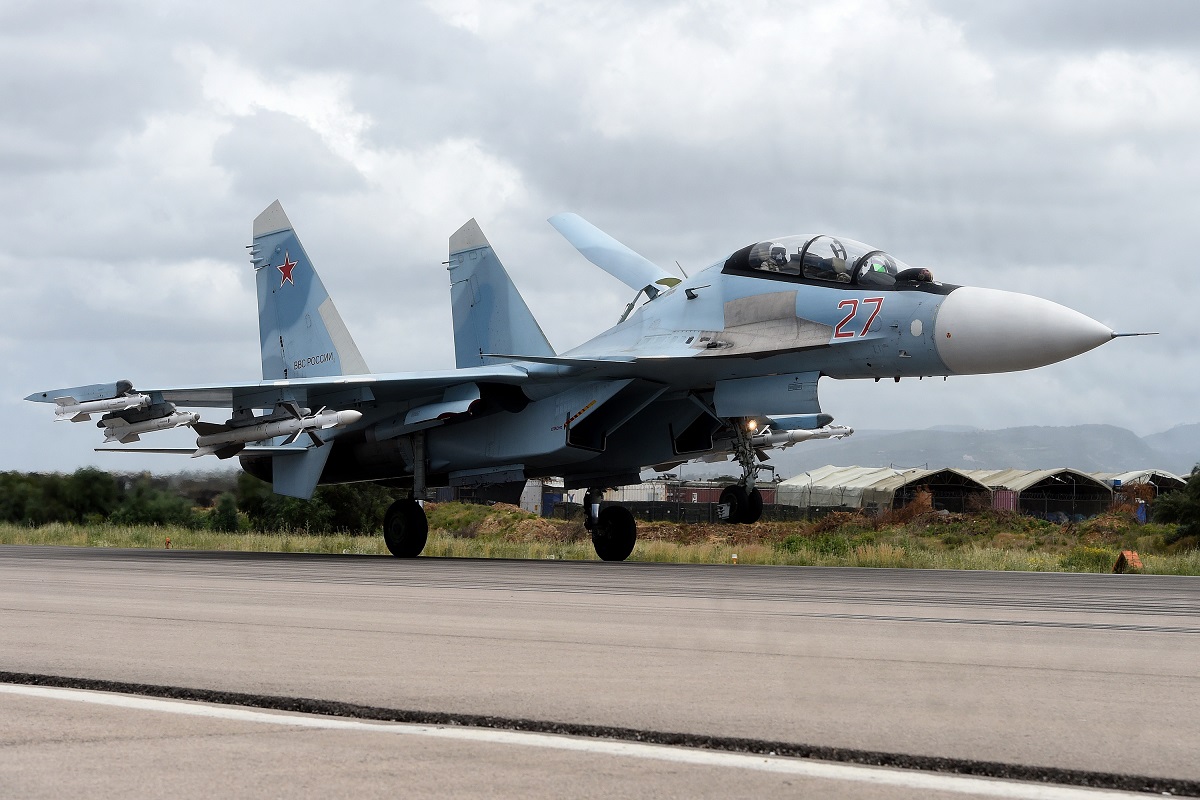Fifth Russian aircraft interception off Alaska’s coast in a month, but experts not alarmed

U.S. fighter jets intercepted Russian military aircraft on Wednesday afternoon, the fifth incident since mid-April.
The latest incident bears some nuance: more planes than usual approached, all while Northern Edge, a massive military training exercise, is taking place on the other side of the state.
Still, military officials and analysts aren’t hitting the alarm button.
“The Alaska North American Aerospace Defense Command Region launched aircraft to identify Russian military aircraft that (were) approaching, and later entered the Alaskan Air Defense Identification Zone,” John Cornelio said. He’s the spokesperson for NORAD, which monitors national boundaries and international airspace near the US and Canada.
Two F-22’s flew from Joint Base Elmendorf-Richardson outside Anchorage to meet the aircraft, which they identified as two Tu-95 long-range strategic bombers flanked by two Su-35 fighter jets. That last bit is a new development; amid the recent uptick in these kinds of incidents, there hasn’t been a fighter jet present since 2014.
“Doesn’t happen all that often, but it’s not unprecedented,” Cornelio said.
Planes remained in international airspace
The planes came within Alaska’s Air Defense Identification Zone, a border extending out as far as 200 miles from land. Sovereign air space extends just 12 nautical miles off the coast. In the context of Russia expanding it’s military aviation program over the last decade, none of this is abnormal, according to Cornelio.
“It’s important to understand that these Russian military aircraft remained in international airspace and at no time entered U.S. sovereign air space, which is consistent with how they’ve always flown,” Cornelio said.
Cornelio cited security concerns for why he couldn’t specify where this latest intercept happened, saying only it was off the coast of western Alaska. That’s hundreds of miles from where 6,000 military personnel are participating in Northern Edge within Gulf of Alaska and Interior training ranges. NORAD doesn’t believe there’s any connection between the exercise and these latest flights.
For the last month, military spokespeople have maintained they are staying vigilant, but are not particularly concerned about the Russian interceptions. In recent years, the number of incursions has ranged from zero to 15, according to Cornelio.
Testing readiness
Heather Conley works for the Center for Strategic and International Studies analyzing the relationship between the U.S. and Europe, with an eye on the Arctic.
“What these types of air incursions are meant to do is test, test readiness.” Conley said, speaking to Alaska Public Media’s Lori Townsend in April, the last time there was incident like this. She wrote by email Thursday afternoon that Wednesday’s interception fit the same profile.
According to Conley, the recent burst of activity could be an effort by Russia to test the capabilities of its bombers, or measure response times in different areas off of Alaska’s coast.
“That is pretty standard fare,” Conley said.
These kinds of military encounters are happening all across Russia’s sphere of influence, and add up psychologically to create a sense of the country’s global reach, Conley explained. She believes the Trump Administration’s recent missile attack on an airfield in Syria, as well as increased tension with North Korea may be prompting the Russian military to flex it’s own muscles.
“It does get noticed, it gets commented on, and in some ways that is exactly what the Kremlin had in mind,” Conley explained. “It wants to get our attention and to respond to it’s growing military power.”
Conley pointed out the U.S. military does similar aviation testing in international airspace.
Related stories from around the North:
Canada: Do Russian bomber patrols in the Arctic threaten Canada’s security and sovereignty?, Radio Canada International
Denmark/Greenland: Discussions underway on who can claim Arctic seabed, Radio Canada International
Finland: UK-led Joint Expeditionary Force will have ramifications for Arctic security: experts, Radio Canada International
Iceland: Iceland won’t back down on sanctions against Russia, The Independent Barents Observer
Norway: Norway’s foreign minister travels to Russia to assure Arctic relations, The Independent Barents Observer
Russia: Moscow says NATO meeting in the Arctic is a provocation, The Independent Barents Observer
Sweden: Sweden’s Prime Minister reaffirms commitment to country’s defense, Radio Sweden
United States: Feature Interview: How should U.S. deal with Russian bombers buzzing Alaskan airspace?, Alaska Public Media



